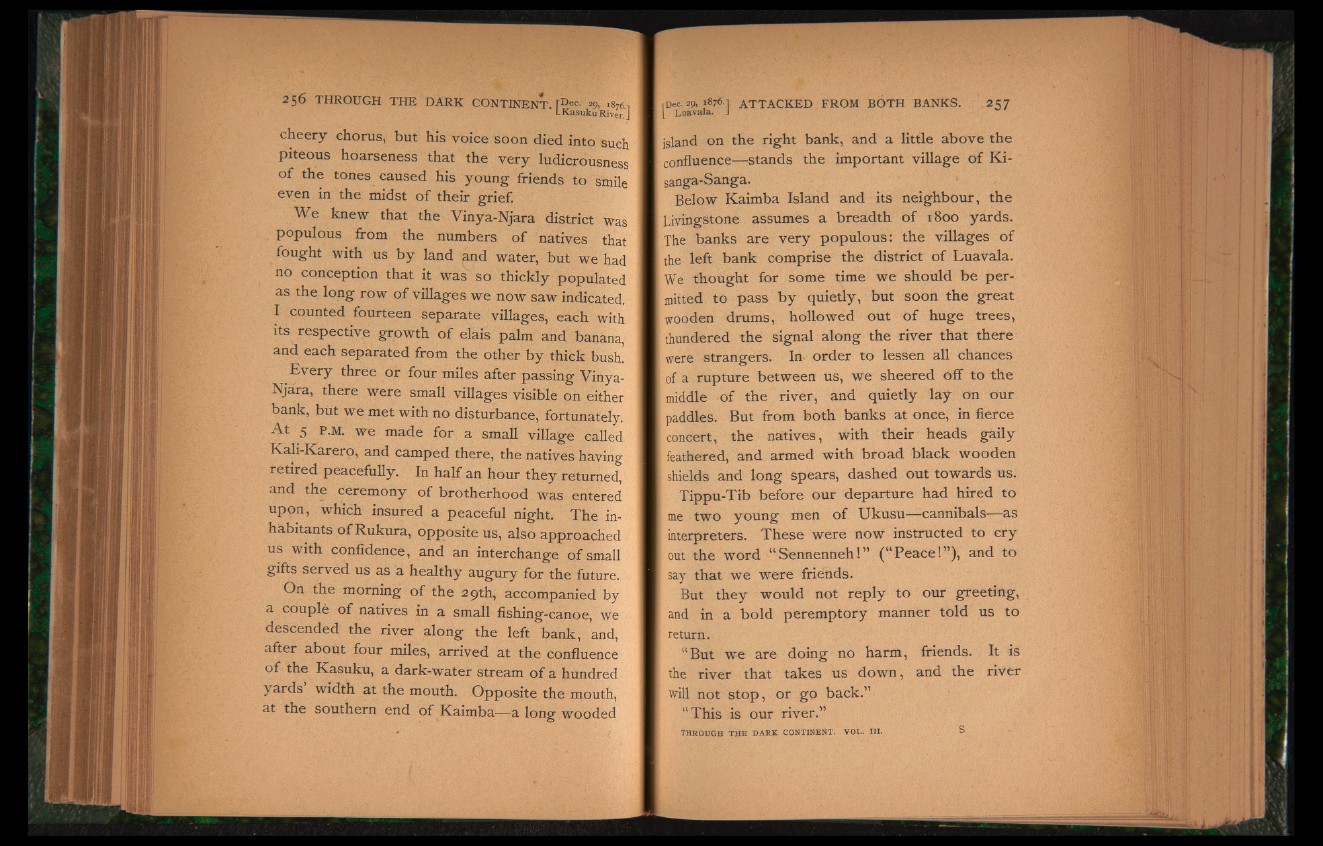
256 THROUGH THE D AR K CONTINENT. [Dec- 29, 1876-,
' L Kasuku River, j
cheery chorus, but his voice soon died into such
piteous hoarseness that the very ludicrousness
of the tones caused his young friends to smile
even in the midst of their grief.
We knew that the Vinya-Njara district was
populous from the numbers of natives that
fought with us by land and water, but we had
no conception that it was so thickly populated
as the long row of villages we now saw indicated.
I counted fourteen separate villages, each with
its respective growth of elais palm and banana,
and each separated from the other by thick bush!
Every three or four miles after passing Vinya-
Njara, there were small villages visible on either
bank, but we met with no disturbance, fortunately.
At 5 p .m . we made for a small village called
Kali-Karero, and camped there, the natives having
retired peacefully. In half an hour they returned,
and the ceremony of brotherhood was entered
upon, which insured a peaceful night. The inhabitants
of Rukura, opposite us, also approached
us with confidence, and an interchange of small
gifts served us as a healthy augury for the future.
On the morning of the 29th, accompanied by
a couplé of natives in a small fishing-canoe, we
descended the river along the left bank, and,
after about four miles, arrived at the confluence
of the Kasuku, a dark-water stream of a hundred
yards width at the mouth. Opposite the mouth,
at the southern end of Kaimba— a long wooded
island on the right bank, and a little above the
confluence— stands the important village of Ki-
sanga-Sanga.
Below Kaimba Island and its neighbour, the
Livingstone assumes a breadth of 1800 yards.
The banks are very populous: the villages of
the left bank comprise the district of Luavala.
We thought for some time we should be permitted
to pass by quietly, but soon the great
wooden drums, hollowed out of huge trees,
thundered the signal along the river that there
were strangers. In. order to lessen all chances
of a rupture between us, we sheered off to the
middle of the river, and quietly lay on our
paddles. But from both banks at once, in fierce
concert, the natives, with their heads gaily
feathered, and armed with broad black wooden
shields and long spears, dashed out towards us.
Tippu-Tib before our departure had hired to
me two young men of Ukusu— cannibals— as
interpreters. These were now instructed to cry
‘ out the word “ Sennenneh!” (“ Peace!”), and to
say that we were friends.
But they would not reply to our greeting,
and in a bold peremptory manner told us to
return.
“But we are doing no harm, friends. It is
the river that takes us down, and the river
will not stop, or go back.”
“This is our river.”
THROUGH THE DARK CONTINENT. VOL. III. S